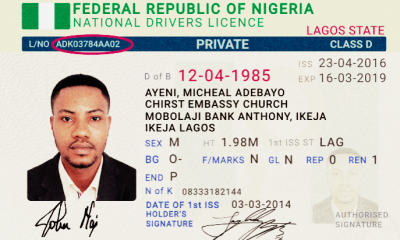Skillful driving
Why Drivers Keep Ignoring Traffic Lights

It’s 7:45 a.m. on a busy Thursday. At the intersection, traffic lights flicker red, signaling drivers to stop. But within seconds, cars surge forward, weaving recklessly through the junction. Horns blare, pedestrians scatter, and near-misses unfold before shocked eyes.

Also Read: Top 10 Traffic Offenses in Nigeria and Their Penalties
For many Nigerians, this scene is familiar, traffic lights are treated as mere suggestions, not rules. Yet, behind this reckless disobedience lies a deadly reality: red-light running is one of the silent killers on Nigerian roads. According to the Federal Road Safety Corps (FRSC) 2023 report, disobedience to traffic lights contributed to over 6,700 crashes nationwide, with hundreds of lives lost.
This article examines why drivers ignore traffic lights, the consequences of this dangerous habit, and the urgent reforms needed to save lives.
1. The Psychology Behind Traffic Light Disobedience
Many drivers in Nigeria see traffic lights as obstacles rather than safety tools. The reasons include:
- Impatience and Time Pressure: In Lagos or Abuja, where traffic jams consume hours daily, motorists feel compelled to “beat the light” to save time.
- Weak Enforcement Culture: With little chance of being caught, drivers grow bolder in violating red lights.
- Herd Mentality: Once one car jumps the light, others follow, creating a wave of disobedience.
- Distrust in Road Systems: Drivers often complain that traffic lights malfunction or remain red for too long, breeding disregard.
This blend of impatience, frustration, and poor enforcement creates a culture where disobedience is normalized.
2. Infrastructure Failures Fueling the Problem
It’s not just about reckless drivers, Nigeria’s road systems also contribute to the problem.
- Frequent Power Outages: Many traffic lights are dependent on electricity, meaning they blink out during outages, leaving drivers confused.
- Poor Maintenance: Malfunctioning or mis-synchronized lights cause unnecessary delays, encouraging motorists to disregard them.
- Inadequate Signage: Some intersections lack clear signals or road markings, making compliance harder.
A World Bank 2021 transport review noted that African countries with weak traffic infrastructure face higher rates of signal violations compared to regions with well-maintained systems. Nigeria is no exception.
3. Deadly Consequences of Ignoring Traffic Lights
Disobeying traffic lights is more than breaking a rule, it’s gambling with lives.
- Increased Road Crashes: Running a red light at high speeds leads to deadly T-bone and head-on collisions.
- Pedestrian Deaths: Pedestrian crossings often align with traffic lights. Ignoring them endangers lives daily.
- Traffic Congestion: Ironically, running red lights often creates chaos, causing longer jams instead of saving time.
- Loss of Trust: Continuous disobedience erodes respect for traffic laws, fueling wider lawlessness.
Example: In 2024, a fatal crash at the Nyanya junction in Abuja, caused by a driver who ignored the red light, claimed the lives of three commuters and left eight others hospitalized.
4. Case Study: Lagos’ Growing Crisis
Lagos, Nigeria’s busiest city, offers a troubling case study. Despite having hundreds of installed traffic lights, compliance rates remain abysmally low. FRSC officials report that nearly 60% of urban accidents in Lagos involve traffic signal violations.
- Motorists often argue that staying too long at a red light exposes them to armed robbers or “area boys”.
- Commercial bus drivers (danfos) frequently break signals in pursuit of more passengers, with little fear of penalties.
- Enforcement cameras are rare, so violators rarely face consequences.
5. Enforcement Gaps: Why Laws Don’t Work
Nigeria has strict penalties on paper: according to the National Road Traffic Regulations (2012), drivers caught running a red light can face fines up to ₦2,000–₦5,000, license points, or even suspension.
But enforcement fails due to:
- Corruption: Many drivers bribe their way out of fines.
- Understaffing: FRSC and VIO officers cannot cover every junction.
- Lack of Technology: Few Nigerian cities use CCTV or automated cameras to catch offenders.
In contrast, countries like South Africa deploy red-light cameras that automatically fine violators, reducing offenses by over 40%.
6. The Human Cost: Voices from the Road
Beyond statistics, disobedience has a human face.
Chinwe, a pedestrian in Port Harcourt:
“I was almost knocked down twice last year by drivers who didn’t stop at the traffic light. Now, I don’t trust those crossings anymore.”
Emeka, a danfo driver in Lagos:
“Sometimes we have to break the light because passengers are in a hurry. If we obey every light, we’ll make less money.”
FRSC official:
“Every red-light crash is avoidable. It’s painful to see families lose loved ones because of impatience.”
These stories show the everyday risks Nigerians face.
7. Solutions: How Nigeria Can Fix the Problem
Fixing red-light disobedience requires a multi-pronged approach:
- Technology-Driven Enforcement
- Install red-light cameras at major intersections.
- Integrate fines with FRSC’s National Vehicle Identification System (NVIS) to prevent offenders from renewing documents until penalties are paid.
- Better Road Infrastructure
- Solar-powered traffic lights to counter power outages.
- Routine maintenance and synchronization to avoid long unnecessary waits.
- Stricter Penalties
- Increase fines from ₦5,000 to ₦50,000 for repeat offenders.
- Introduce license suspensions and community service for habitual violators.
- Driver Education Campaigns
- Mass sensitization campaigns on radio, TV, and social media.
- Collaboration with driving schools to emphasize road safety.
- Public-Private Partnerships
- Tech companies can support with smart sensors and enforcement tools.
- Corporate sponsorship for better-maintained road systems.
8. RoadKing.ng Recommendations for Drivers
For every Nigerian motorist, here’s what you must remember:
- A red light is non-negotiable. Stopping saves lives.
- Don’t follow the herd. Even if others jump the light, stay disciplined.
- Plan ahead. Leave early to avoid the temptation of rushing through signals.
- Respect pedestrians. Red lights are their lifelines too.
Conclusion
Ignoring traffic lights may seem like a small act of impatience, but on Nigerian roads, it often writes the tragic headlines we read daily. Until drivers, enforcement agencies, and government authorities unite to uphold the sanctity of traffic signals, thousands more lives will remain at risk.
At RoadKing.ng, our message is clear: Every red light is a life-saving pause. Obey it, and you may save your own.
























